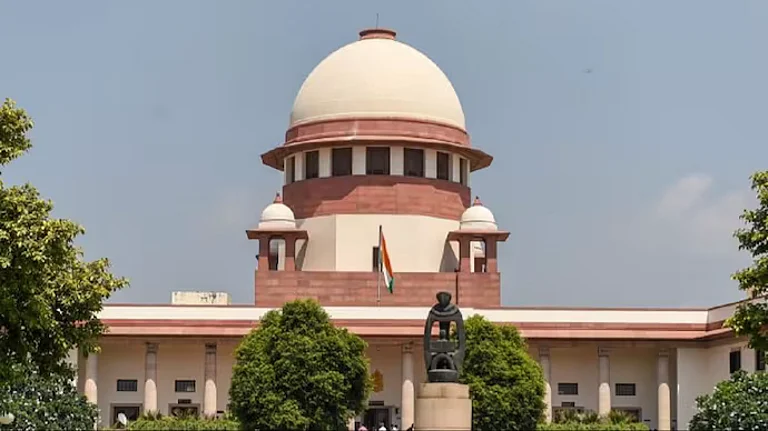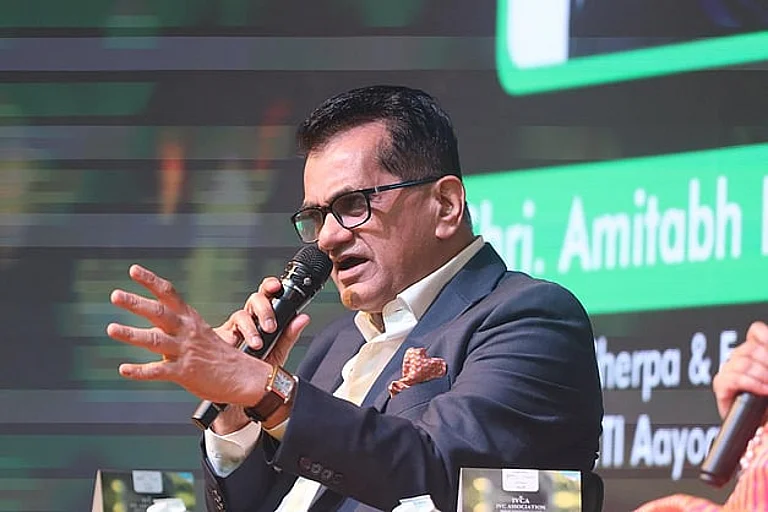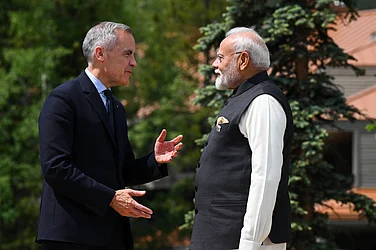The Supreme Court has refused the appeal seeking the cancellation of the registration of the All India Majlis-e-Ittehadul Musalimeen (AIMIM) as a political party. However, it has allowed the petitioner to file a writ raising larger issues regarding the validity of political parties with religious objectives.
Tirupati Narasimha Murari, a 2018 member of the undivided Shiv Sena, filed the appeal, alleging that the AIMIM's stated objectives focus solely on serving the Muslim community. As reported by Live Law, he argued that this violates the principle of secularism and, therefore, the party should not be recognized as a political entity.
In a report by The Indian Express, the appeal challenged the Delhi High Court’s November 2024 dismissal of a plea seeking the de-registration and de-recognition of AIMIM by the Election Commission of India (ECI). The High Court had termed the plea as “tantamount to interference with the fundamental rights of the members of AIMIM to constitute themselves as a political party.”
Murari believes that AIMIM “intended to further the cause only of one religious community (Muslims), and thus militates against the principles of secularism, to which every political party must adhere under the scheme of the Constitution and the (Representation of the People) Act”.
Advocate Vishnu Shankar Jain, appearing for the petitioner, argued that the internal constitution of AIMIM (foundational document outlining the party’s objectives), violates the principles of secularism, and therefore, it should not be registered as a political party under Section 29A of the Representation of the People Act, according to Live Law.
Jain also argued that there is a legal vacuum which many parties are trying to exploit. "Seeking votes in the name of religion in an election is a corrupt practice as per Section 123(3) of the RP Act, a party with religious objectives cannot be permitted to contest elections", he said.
In response, the bench comprising Justice Surya Kant and Justice Joymalya Bagchi refused to interfere with the Delhi High Court's judgment, which had rejected the plea against registration of AIMIM as a political party under the Representation of the People Act.
Justice Kant, pointing out that the Constitution itself specifically grants protection to minorities, opined that a declaration to work for the interests of minorities may not be objectionable.
"Suppose a party says we will promote untouchability, that is absolutely offending, that must be struck down, that must be banned...Suppose a religious law is protected under the Constitution and a political party says we will teach that law, they will teach because it is protected under the Constitution...what is only within the framework of the Constitution [that may not be objectionable]", said Justice Kant.
Jain asked why the party must strive for unity only among Muslims and “why not all of us?” in response to the interests of the party. Justice Kant said the petitioner may have a point in contending that the parties are not doing what they undertake to do.
Jain cited the Supreme Court’s judgment in the Abhiram Singh case, and said, “the strict mandate was that no political party or the candidate will ask for votes in the name of religion. See how this mandate is getting violated time and again. If you are a political party which has a particular name, which portrays its support for a particular community…then the question is whether the judgement delivered by this court in the Abhiram Singh case is getting effectively implemented.”
In response, Justice Kant remarked that the Abhiram Singh case applies when a candidate or political party appeals to religious sentiments to win votes, and the key question is whether such actions amount to a corrupt practice, according to The Indian Express.
Justice Kant, while advising the petitioner to withdraw the Special Leave Petition, commented that there is some “grey area”, “You may be right, there is some grey area. File a neutral petition which does not accuse any abcd...or which accuses each and everyone who is indulging in. There are political parties which rely on caste considerations, that's equally dangerous.
Suggesting the petitioner file writ without naming any party, Justice Kant said, " A larger and wider perspective is reforms...without indulging any party, you can raise general issues...if need be, the Court will take care."

























